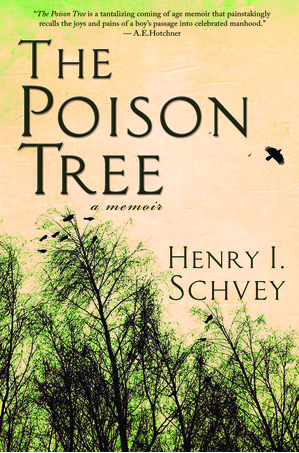Share the post "Virginia Slachman Reads from her new book Many Brave Hearts"
by Diana Davis

Virginia Slachman
Virginia Slachman, a gifted poet and talented photographer , has just written her first book, a sensitive memoir about growing up in the years following World War II. Her mother, Victoria, had served as a nurse anesthetist in the first evacuation hospital, just behind the front lines of Patton’s Third Army in Germany. The sights that she saw, the men who cried for their mothers and died before she could get them out of surgery, the horrible wounds of the soldiers, and of the children injured in the war, left her emotionally crippled. Victoria never ever talked about the war; not one word, ever.
Victoria was a victim of war-time, post-traumatic stress disorder (PTSD) in an era when psychiatrists lacked a name for the illness, let alone a treatment. She lived during an era where a family looked after its own and where mental illness was not understood. Her mother suffered from PTSD and was treated with Compazine and shock therapy. She was, for a time, committed to a locked psychiatric ward.
A victim of mental illness does not live in isolation. The illness expands to affect the lives of all with whom the ill person comes into contact, especially the immediate family. In the Slachman case,her illness expanded to include her husband and children. Virginia cobbled the two voices together, and we read first the experiences, panic-stricken thoughts and feelings of the child; then the calm, recorded reminiscences of the father, who told war stories forever, beginning, “Did I ever tell you the story about the time……” The father, Herman used to frequently end his stories by singing the lines from “Asleep in the Deep.” “Many brave hearts are asleep in the deep, beware, beware.”
Victoria’s story is told from two perspectives. The first is that of a little girl dealing with a raging and morose alcoholic mother who abused her children physically and emotionally. Children don’t understand such overwhelming problems, but they must survive in them. Victoria’s story is also told from her husband’s perspective. He loved his wife and children above all else and did the best he knew how to do to care for them while working to maintain a business. “It’s a grim tale,” Virginia said. It is a tale filled with suicide attempts, debilitating depression, and chronic alcoholism.
Victoria hid her liquor bottles. The children never saw her drinking, yet when they came home, there was a only a brief hesitation as they figured out if it would be a good day or a bad day. Bad days, when their mother was raging drunk, were “running days.” On those days, the kids ran to their rooms and closed their doors. Virginia had to brace herself in the closet and lock her knees, so her mother could not push open the door to her room. She sat in numbness while her mother stood outside, beating on the door and calling her a “little bastard” and screaming, “It’s all your fault, where’s your Jew-boy father?” Nights were the worst. The kids waited as their father took on the abuse until he could finally get their mother settled down and to bed. After, he would come in and tuck them in and then lay on the floor between the kitchen and the living room with his arm thrown across his eyes, sleeping as he had on the submarine.
One of the most poignant scenes in the book was when Virginia had a talk with God on the day before her birthday, saying, “You know, things haven’t been so good around here. You know I really have tried, but I don’t know what to do. I’m just a kid, God. If you would just tell me what to do to make her stop drinking, to make her happy, you know, I’d do it. But you never told me what to do. Tomorrow is my birthday; please, God, don’t let her get drunk tomorrow. Just one day, that’s all I’m asking. One day. Please.” Her heart-breaking prayer went unanswered.
Virginia Slachman tells the representative story of the collective American experience of American families whose members came home from World War II (or any war) with PTSD. Family members are forced to deal with the consequences of the trauma. This is a must-read for military families.
Virginia Slachman is the author of three collections of poetry and one award-winning chapbook.
Previously, she was the editor of Aspen Anthology and the associate director of the Aspen Writers Conference. . She holds a Ph.D. from the University of Cincinnati. She is now retired, although she taught for many years at Principia College in Elsah, Illinois, and prior to that at the University of Cincinnati. She also worked for McMillan and Addison-Wesley Trade Magazine. She has received numerous fellowships and awards for her work. A Pushcart-nominated poet, her work has appeared in many literary journals and anthologies, both in the United States and in the United Kingdom. I suspect that this work will also be an award-winner because of its honesty and because of the skill of the writer.



